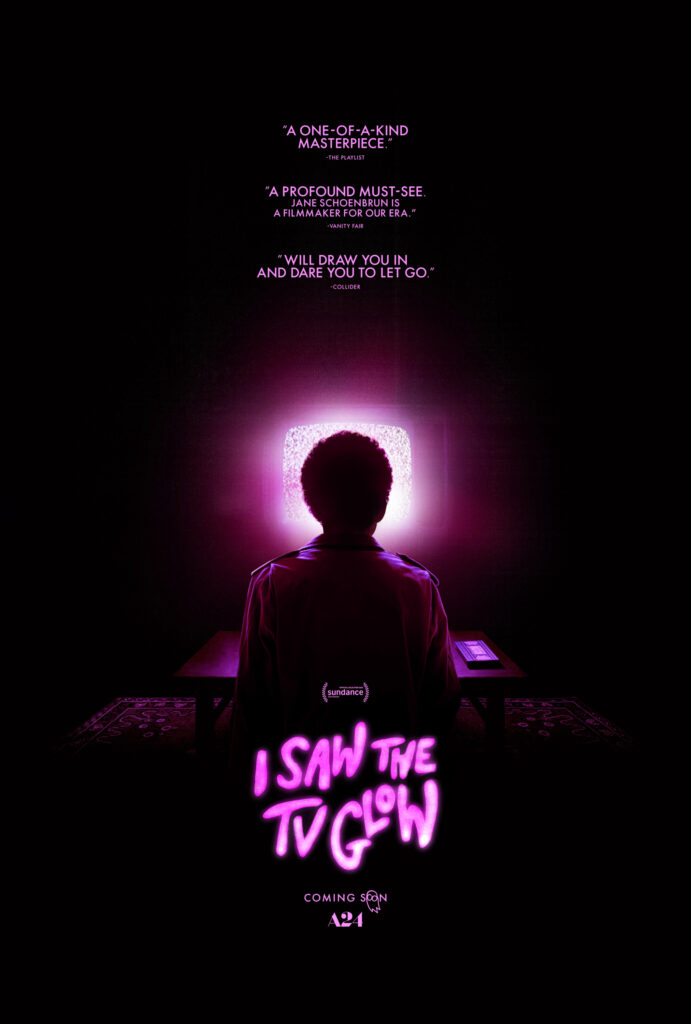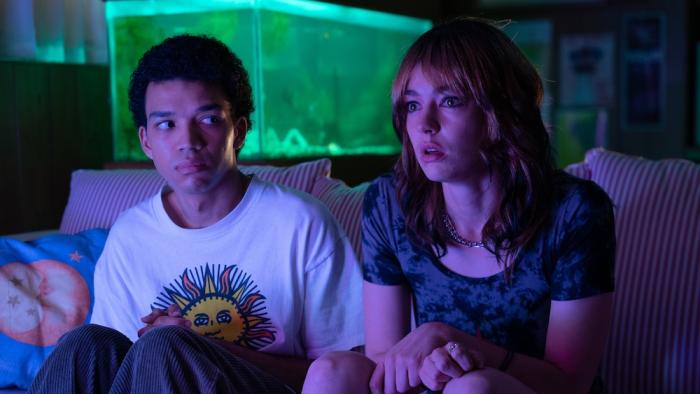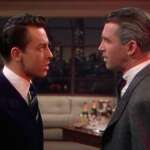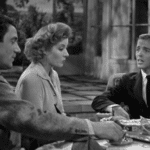By the time I hit play to watch I Saw the TV Glow, I’d already absorbed much of the discourse surrounding the film. While I didn’t know all the narrative beats, I understood the core message. This may be why I was on board from the start, despite its surreal, indie vibes, which aren’t always my thing and may not be for everyone.
If you’re unfamiliar with the film, here’s a tease: I Saw the TV Glow, written and directed by Jane Schoenbrun, opens in the mid-1990s with a young introvert named Owen. With few friends, Owen forms a meaningful connection with Maddy, an older kid who introduces them to the TV show The Pink Opaque. The show follows teenagers Isabel and Tara as they battle the sinister Mr. Melancholy. Owen and Maddy quickly become obsessed with the show’s lore, but soon, life-changing events take place that will alter their futures forever.
Spoilers Ahead
Discussing the film without spoilers is tricky, so consider this your warning if you want to stop here and watch it first.
What first drew me into the film was The Pink Opaque itself, the show within the show, as well as the overall world the film presents. Both elements have the vibe of a low-budget ‘90s Nickelodeon show—think Are You Afraid of the Dark? meets The Adventures of Pete & Pete. As someone whose formative years took place in that decade, I was instantly connected to the story. While this aesthetic might alienate some viewers, it worked for me and was one of the film’s key entry points.
Initially, I found myself more tuned into the vibe of the show than the characters, especially Owen. Played excellently by both Ian Foreman and later Justice Smith, Owen keeps the audience at a distance, much like they do the world around them. This doesn’t make them unlikeable, but it did make it harder for me to connect with them. That said, the film’s deeper themes are what truly elevate it—and this is where the spoilers get heavier.
In many ways, the film represents several potential journeys, but I’d argue it’s most clearly a trans narrative. Owen’s fascination with The Pink Opaque becomes central to their identity, but as the story progresses—especially after Maddy leaves the fandom and the show is canceled—it becomes clear that Owen’s connection to the show goes far beyond fandom. Owen isn’t just a fan; they’re Isabel, one of the show’s leads. This revelation turns the film into a story about embracing one’s true identity, with Owen accepting their trans identity through their connection to Isabel.
Unlike most narratives that follow a traditional hero’s journey with a triumphant conclusion, I Saw the TV Glow leaves us on a downbeat note. Owen’s internal struggle persists, and the film morphs into the horror it was labeled as, but perhaps didn’t fully embody until this point. Owen’s torment, born from their denial, is unsettling, and while the film’s final act is difficult to watch, it’s a necessary culmination of the themes Schoenbrun explores. Schoenbrun’s choice to end the film on such a harrowing note may not be for everyone, but for me, it worked.
The one aspect I might question is the pacing. I Saw the TV Glow is the definition of a slow burn, and if you’re expecting a traditional horror movie, you might find the pacing frustrating. It’s slower than Romero’s zombies at times, which can heighten the tension, but it also risks making certain scenes feel overly drawn out. However, I wonder if critics who don’t click with the film are likely to have disengaged long before these pacing issues become apparent.
For me, despite some scenes feeling a bit stretched, I Saw the TV Glow as a deeply moving and wrenching story. It’s easy to see why it’s become one of the most talked-about films of the year. Yes, it feels indie, and yes, a scene or two could have been trimmed, but if you’re able to get on this film’s wavelength, it could be a transformative experience. As a non-trans person, I found it gave me a powerful glimpse into the trans experience, which is one of its most profound achievements.

“I Saw the TV Glow” (A24)









